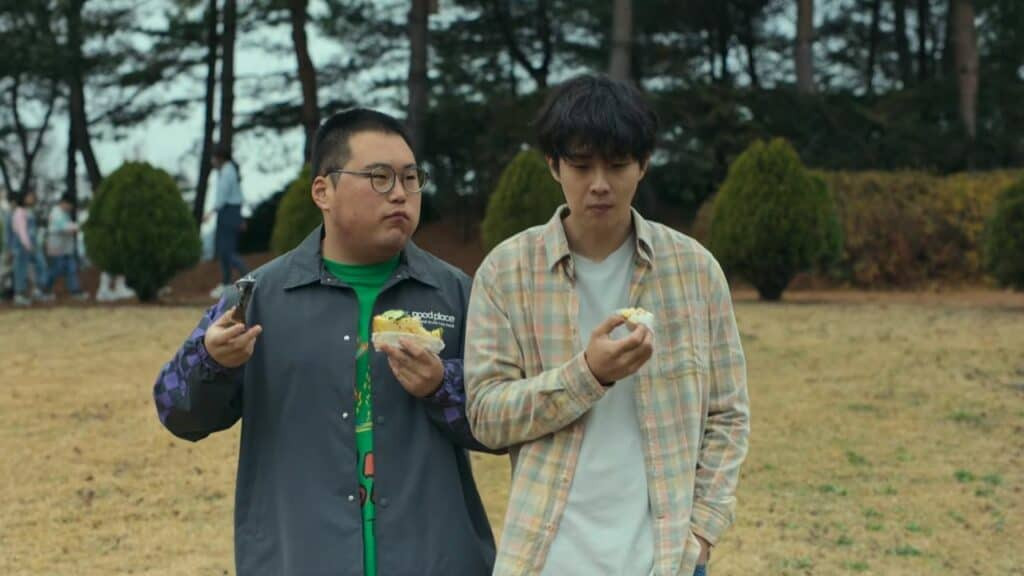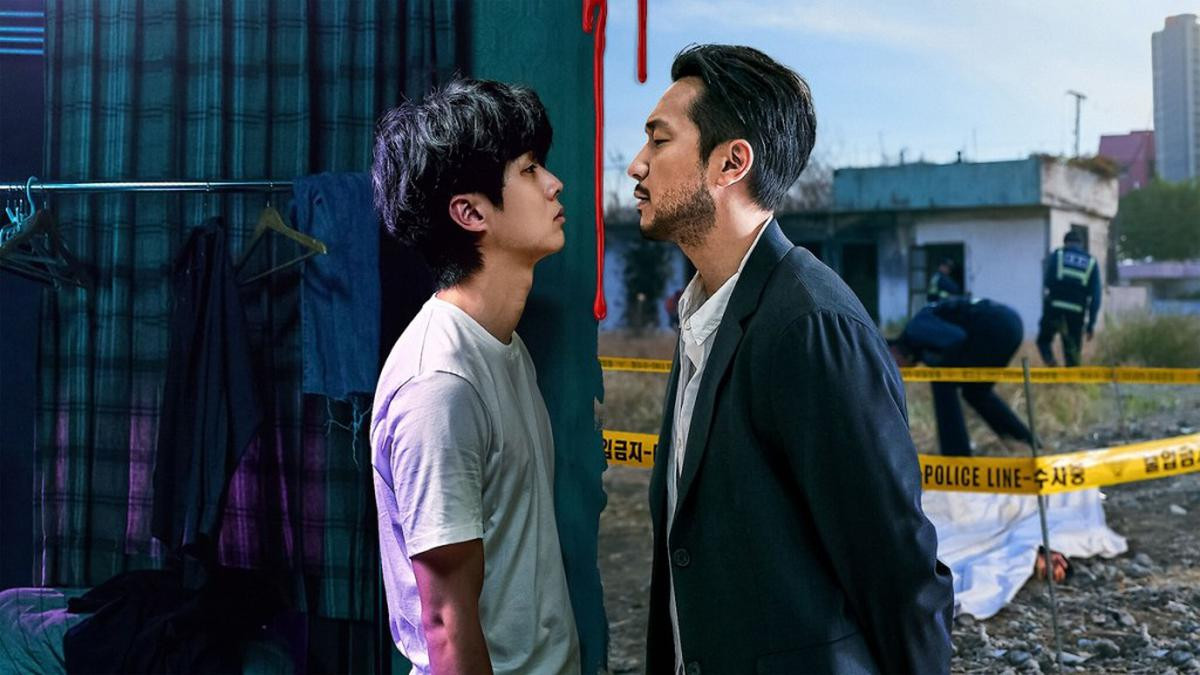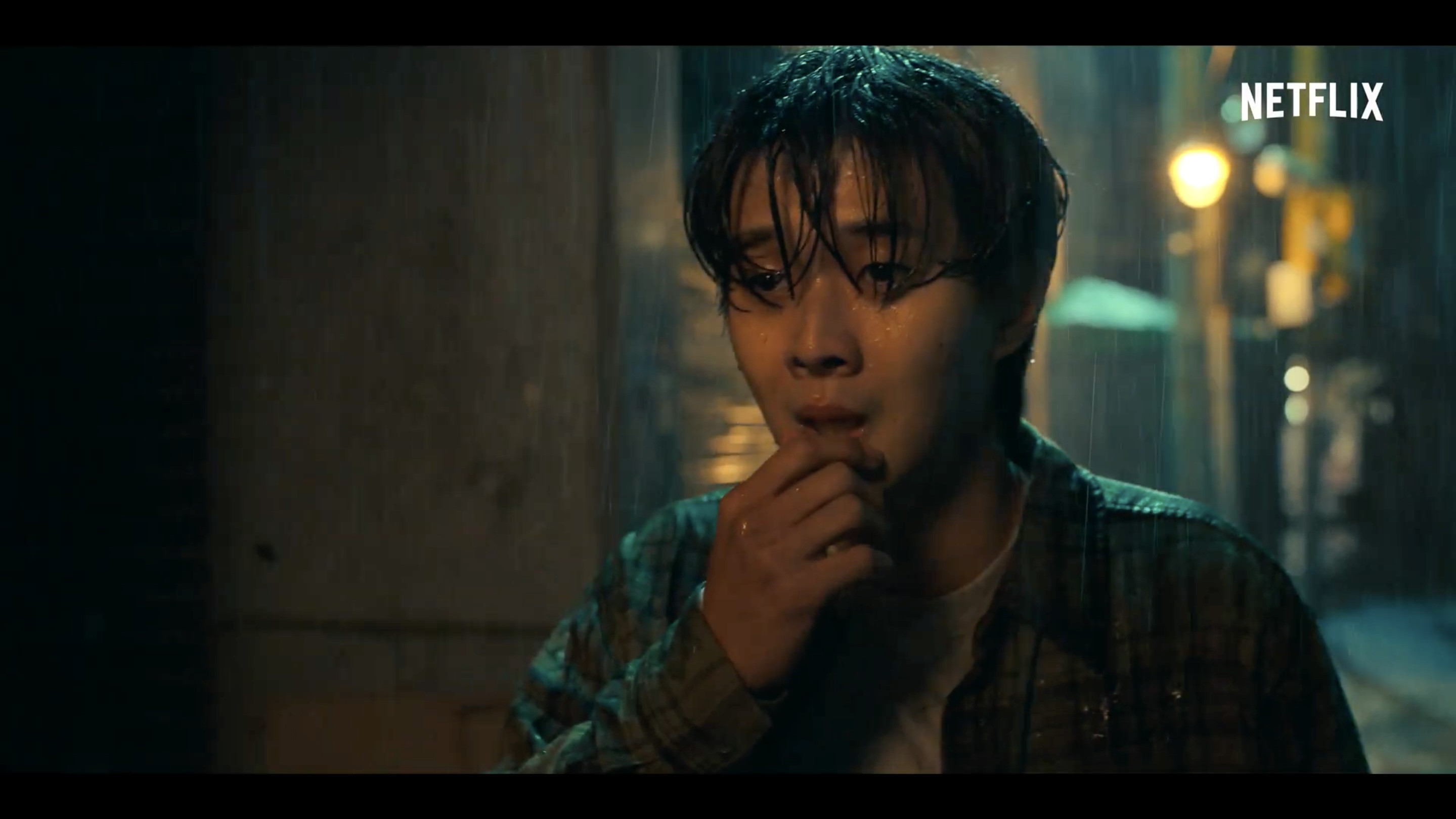An aimless high-schooler. A nerd living a fantasy of being a superhero sidekick. A detective indefatigable in catching culprits. What do they have in common? Revenge. Lee Chang-hee’s A Killer Paradox explores the dilemma of seeking revenge to appease a sense of justice from the perspective of these characters, justice which is both vigilante and lawful.
The South Korean limited series A Killer Paradox is entertaining enough to binge and even rewatch. Those who are frustrated with the dearth of crime thrillers on Netflix this year will not be disappointed with this superbly edited show. Fans of Korean fare will enjoy it equally as it offers quintessentially nuanced Korean performances by a strong cast, a gripping and fast-paced plot and edgy camera work – in fact the cinematography is an accomplishment which has been unanimously hailed by reviewers.
The protagonist Lee Tang (Choi Woo-shik, known for his role in the Oscar-winning film Parasite) lives an uneventful and unmotivated life as a young boy who has dropped out of mandatory military service. His other option is school which he is dragging through with zero interest. He has a part-time job at a quiet 24/7 store, again not the most engaging activity for him. He lives in his parents’ simple home along with a sister who is preparing for her wedding. The teenager is hardly involved in family life either. Life is dull and even dark like the streets outside the store he works at.

The only spark of aspiration he has is dreaming of visiting Canada to see the Rocky Mountains. When he orders a painting of the mountains, he looks for a hammer to hang the frame up in his room. Thus starts for him a life unthought of; for want of a nail (rather a hammer in this story) he loses everything. During his night shift, he borrows a hammer from the storeowner but by the time he brings it home, Lee Tang has blood on his hands. Crossing the dark alleys after work, he accidentally comes upon a murder and, more horrifically, the perpetrator who also attacks him for discovering his crime. It’s late at night, the rain is driving down and nobody’s about to save him. Except the borrowed hammer. Later, police investigation reveals to the media that Lee Tang’s victim smashed to death in self-defense was indeed a serial killer. This information not only assuages some of Lee Tang’s immense nightmarish guilt but prompts him to recognise an odd superhero-like quality of identifying bad guys like his accidental first victim.
The significant scenes in Paradox occur in the dark of the night, enhancing the mood of this psychological thriller. However, it is an easy watch and the blood and gore is displayed with some restraint. The plot twists are so numerous that you might not get a handle on all the story arcs midway but only for a couple episodes. Paradox uses every plot reveal as a stepping stone to progress deeper into the cause and effect of crime, revenge and indeed the shape and form of justice.

Episode 2 was one of my favourites as it switched from drab and dark tones set in the first episode to broad daylight and vivid colours to set the stage for the most shocking murder. This is one of the surprising elements of the show, how characters are disposed of but not before you get to know a bit about each.
The show is comprised only of eight episodes, so you think there is no time to delve into the stories of all the characters who cross Lee Tang’s path. But somehow the creator of the drama has time for flashbacks to flesh out their backgrounds and hence expose them as good or bad. Maybe it has just been a long time since I watched a show of any genre not falling into the traps of hackneyed tropes (most recently cringeworthy Bridgerton and insipid Bodkin) but Paradox deftly kneaded many elements of storytelling into a fabulously layered croissant, which is light and fresh to feast on. Moreover, discovering that this is Lee Chang-hee’s adaptation of the webtoon makes perfect sense when you see and enjoy the visual effects of the show. Lee manipulates the Matrix bullet time technique beautifully to make it his own, it is artistic. Again, this is a strength displayed by Korean TV moments of creating beauty and originality which results in memorable scenes.
The story-telling done through cinematography may remind you a little bit of the weird and wonderful Danish noir thriller Copenhagen Cowboy in the sense that it has the flair of originality. But Paradox has much of the black Korean humour to blunt the tension that is thick and dreadful in Nordic noir.
Actor Son Suk-ku does a lot of the heavy lifting performance-wise as Detective Nan-gam. When Nan-gam enters the scene, he causes your scalp to itch and twitch to piece all the puzzle pieces together. It is sheer entertainment to behold him sauntering into every scene all contemptuous and with not a regard in the world for anyone. His exchanges with suspects and colleagues alike are brusque. He is downright unpleasant but equally thorough in leaving no stones unturned to catch culprits. He also has his own cross to bear – to avenge his father who is on life support after being attacked by a colleague years ago. His father too was a cop but not a loving husband or dad. Yet Nan-gam’s life purpose is to get some justice for the crime that ended his ‘false’ sense of security in his childhood. Nothing is black and white for Nan-gam either. The big reveal in the final episode of Paradox sheds as much light on the truth of his past as it does for the kid and culprit he chases.,

The hardest character to grasp is Roh-bin, the chubby-cheeked geek who appears utterly meek and engages with the world only through his keyboard. It is hard not to feel empathy for a baby-faced rotund hermit, so the viewer is on shaky ground when Nan-gam confirms him to be the mastermind behind many murders. Roh-bin is naïve and devious at the same time which makes his character puzzling. In his desire to hire a hero to form a justice league duo, he comes upon Lee Tang. Although Roh-bin espouses to be the sidekick, he consciously or unconsciously grooms him instead.
After encountering Roh-bin all the narrative arcs flow and intertwine quickly. With reveals being unveiled in quick succession, the viewer would expect all the pieces of the puzzle to start falling together somewhat predictably. But you can’t really have you’re a-ha moments easily because our Kafkaesque friend Lee Tang and his sidekick have become increasingly unpredictable. There is a method to their madness but it eluded me at least. In the climactic episode, the season ends with yet another accidental death and it is up to you to write it off as collateral damage or justice being served. The quick paced scene where all the main character converge also colours the scene with a heightened sense of tragedy. If there will be a second season, I hope to see Son Suk-ku and Choi Woo-shik return. Although these eight episodes were wrapped up satisfyingly enough.
